

In order to reduce the loss at the manufacturing stage, which accounts for the largest proportion of business food loss,
there is a growing movement to effectively utilize non-standard and surplus items without discarding them.
Products with irregular shapes and numbers are sold cheaply, and non-standard products are processed and sold as new products.
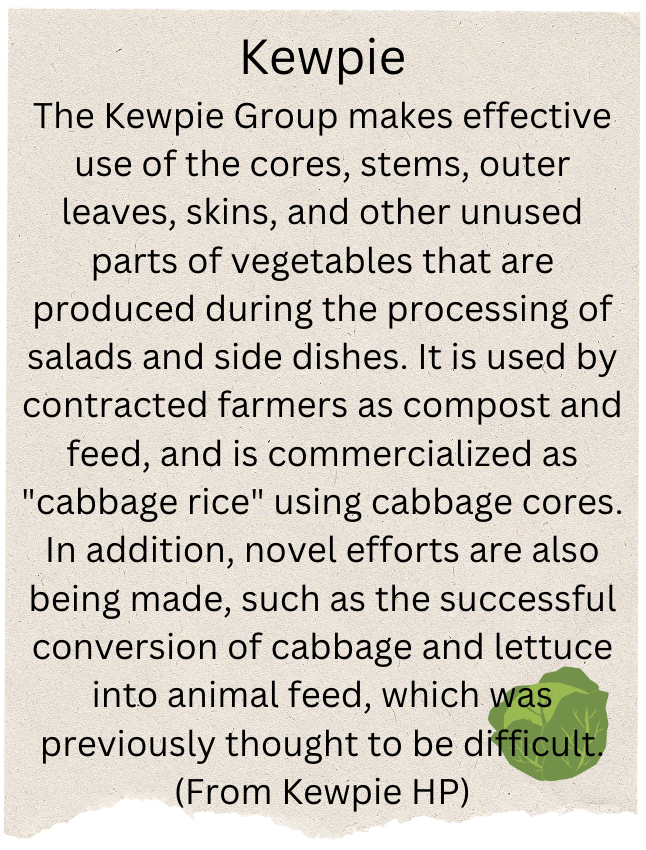
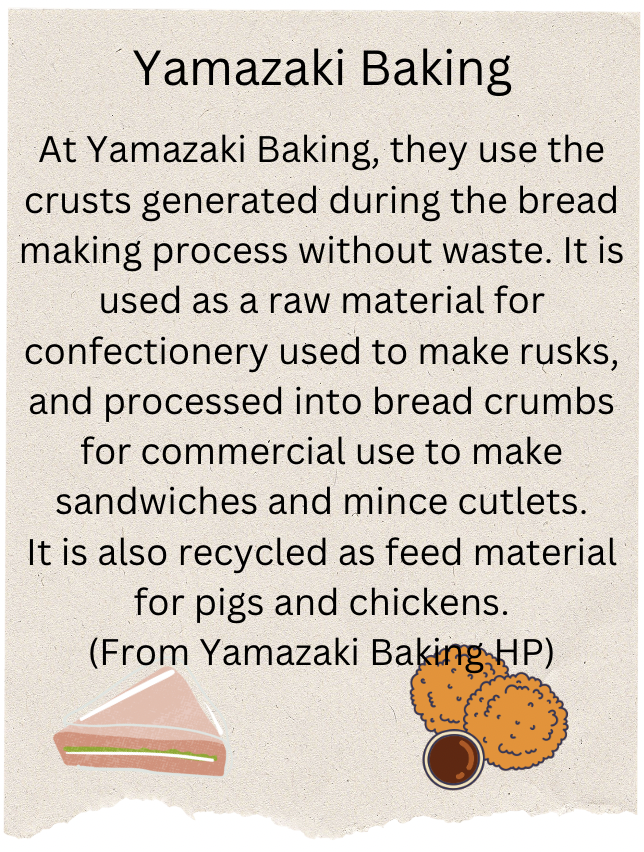
In addition, some companies are working to improve the storage capacity of food
by developing new container and packaging materials and devising package structures to extend the expiration date.
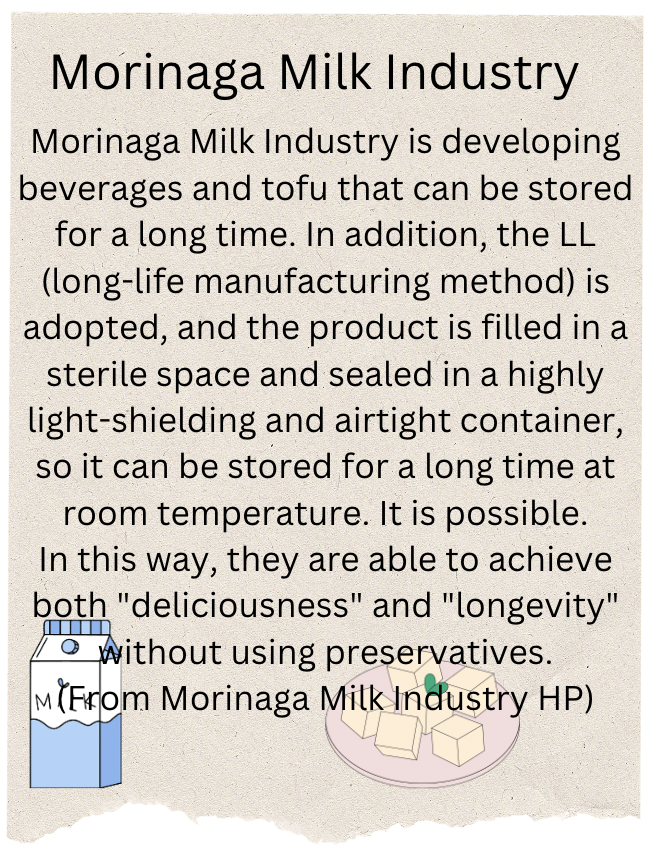
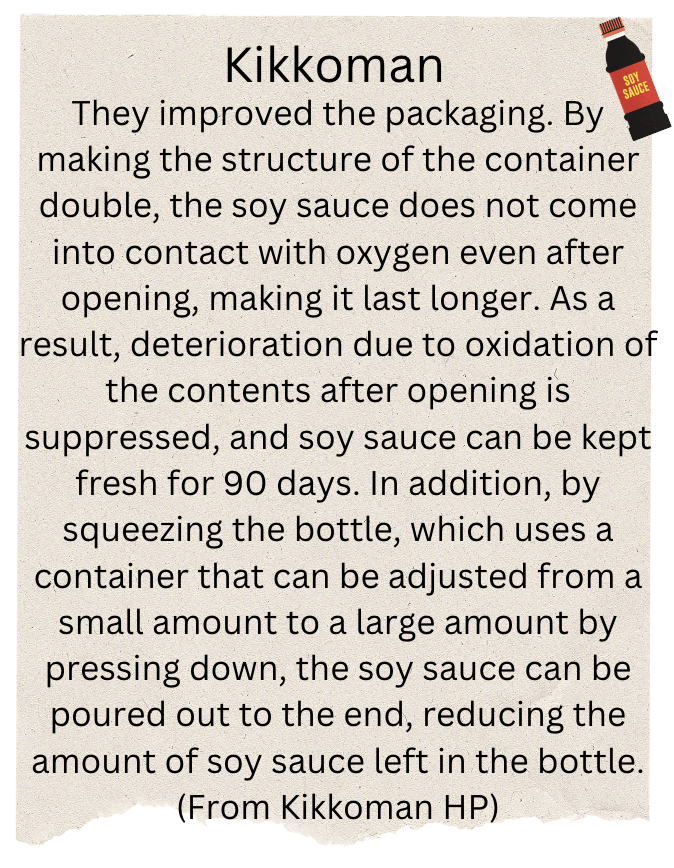

The 1/3 rule is being reviewed.
Seven-Eleven, Tokyu Store, Aeon Market, etc. are relaxing (or planning to) delivery deadlines.
The government is recruiting and announcing food business operators
that are working to review these business practices and calling for the review of the rule.

Following measures are taken at convenience stores.
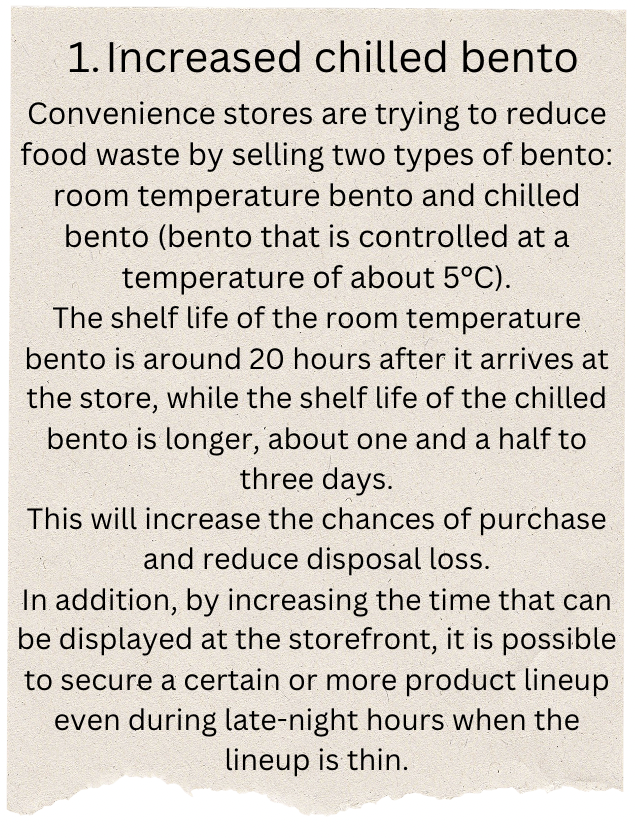
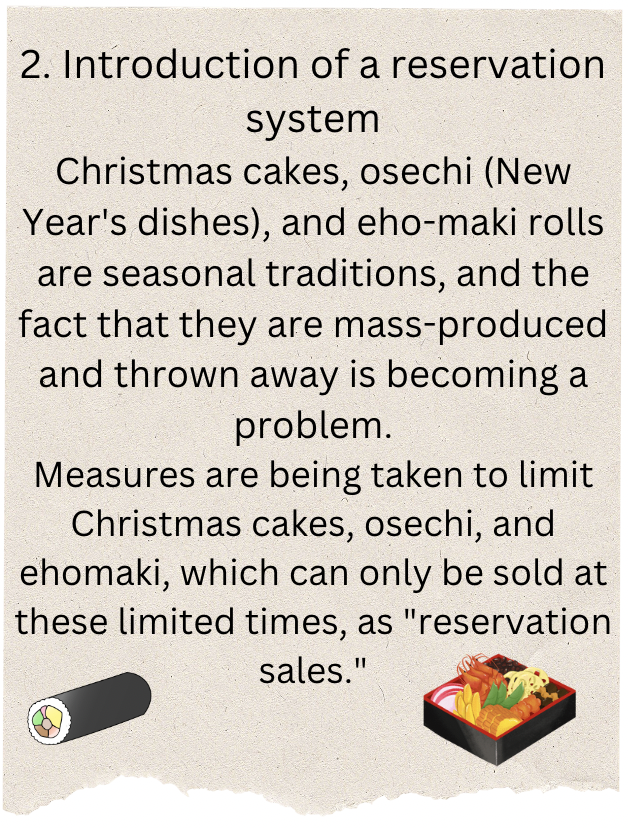
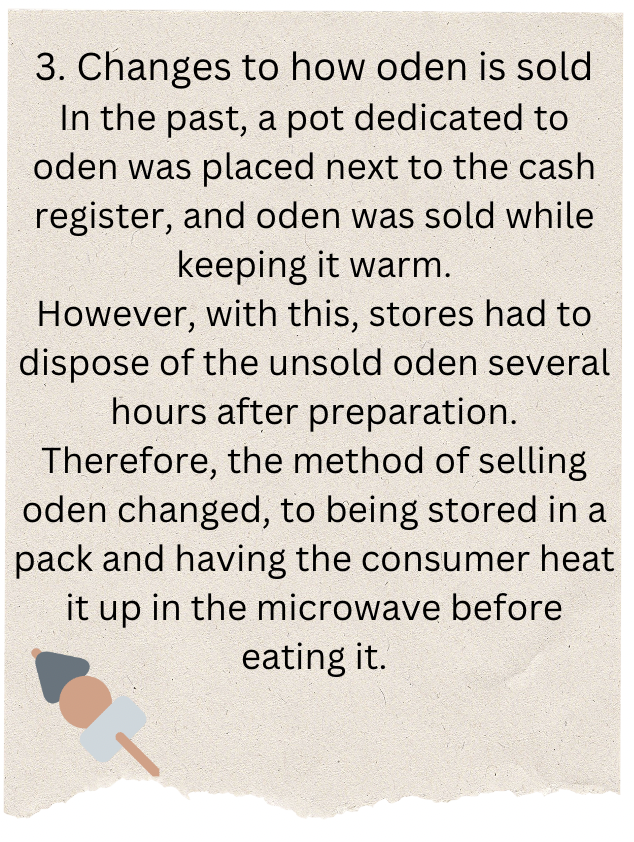

One of the measures taken by restaurants is to predict the amount of preparation.
When a store places an order for raw materials, it uses data such as the name of the product that sold the previous week,
the price of the product, the number of products, and the time of purchase to predict the appropriate shipment volume.
In addition, restaurants that are working to reduce food loss are reviewing the amount of food they serve.
Restaurants are reducing the amount of leftover food by allowing customers to choose the amount of food served,
reducing the amount of food served at the beginning, and offering free refills, small side menus, and single-item menus.
In addition, by forming a recycling loop in cooperation with raw material producers and food recycling businesses,
restaurants are processing and utilising food that would have been discarded as dry eco-feed (a type of feed).
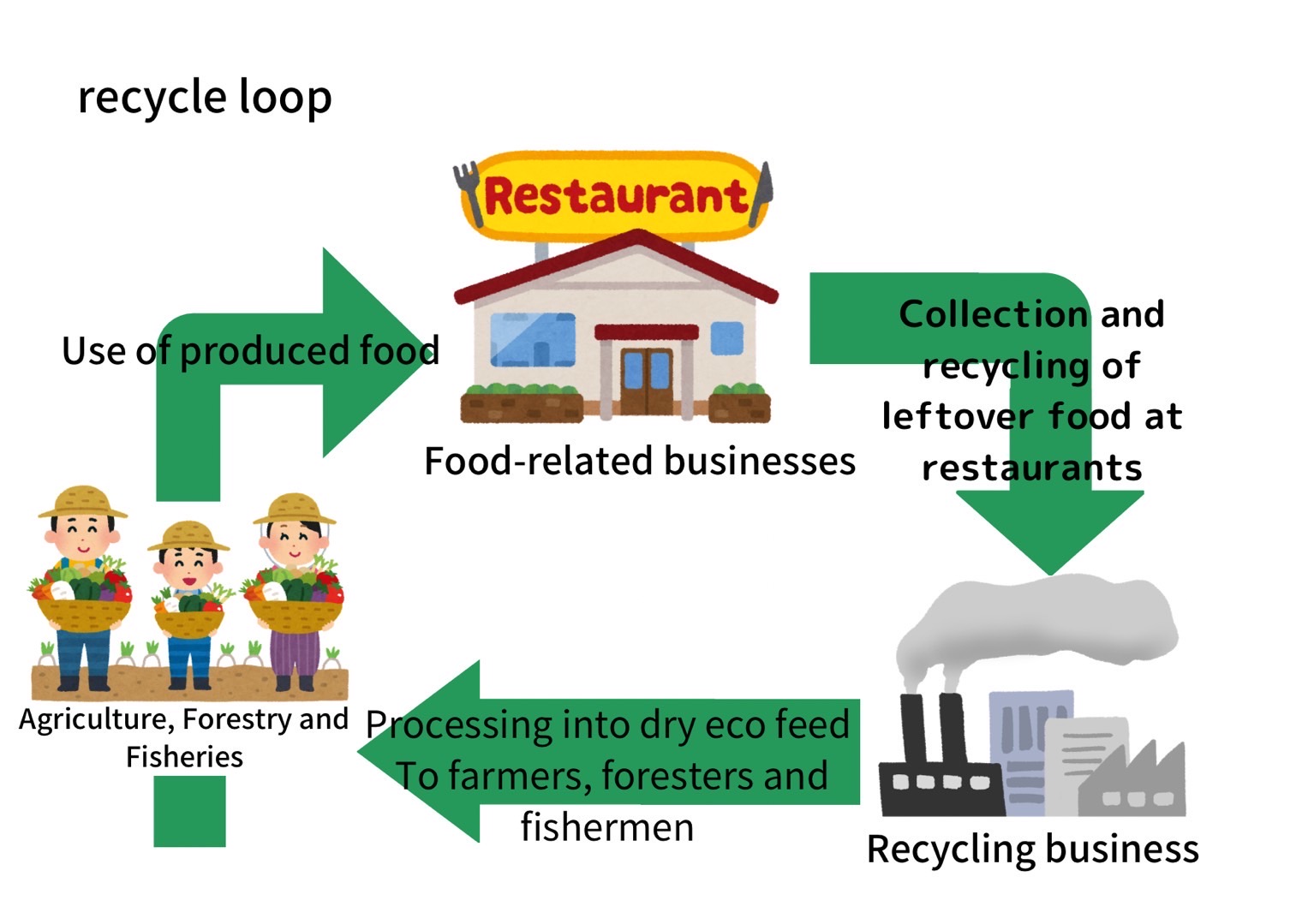


I didn't know that various measures were taken
against food loss in the restaurant industry.
Yep.
There is also a restaurant with a unique measurement against food waste.


McDonalds
At McDonald's, products such as burgers, drinks, and fries are available in various sizes,
so customers can choose how much they can eat.
If you can't eat all of it, you can get a paper bag so that you can take it home.
In addition, McDonald's has adopted an original system called "MFY (Made For You)"
that cooks burgers after receiving customer orders.
In 2005, the system was completed at all stores,
reducing food waste as much as possible while allowing customers to enjoy the taste of freshly prepared food.
Compared to before the introduction of the MFY system,
the disposal of finished products has been reduced by more than half, leading to a reduction in food loss.

Bibliography :
・食品リサイクル推進協議会 -「リサイクルループ構築について」(https://www.shokurikyo.org/information/72.html)
・キューピー -「食品ロスの削減・有効活用」(https://www.kewpie.com/sustainability/eco/resources/)
・山崎製パン -「食と環境への取り組み2019」(https://www.yamazakipan.co.jp/shakai/kankyou/pdf/2019/kankyou2019.pdf)
・キッコーマン -「キッコーマンの取組」(https://www.mhlw.go.jp/content/10904750/000761521.pdf)
・森永乳業「森永乳業 サステナビリティレポート 2019」(https://www.morinagamilk.co.jp/sustainability/pdf/2019/mn_sus2019_10.pdf)
・朝日新聞 -「コンビニは食品ロス削減にどう取り組んでいるの?」(https://oshihaku.jp/nenkan/page/14376920)
・FoodTechHub -「コンビニにおける食品ロスの現状と各社の取り組みを紹介」(https://foodtech-hub.com/foodtech/food-loss/1410/)
・JAグループ -「食品ロス削減へ"3分の1ルール"見直しなど経営層に強力要請へ 子ども食堂などへの寄附推進も」(https://www.jacom.or.jp/ryutsu/news/2022/09/220913-61538.php)
・農林水産省 -「外食における食品ロス対策」(https://www.maff.go.jp/j/shokusan/recycle/syoku_loss/170516.html)
・マクドナルド -「Made For You」(https://www.mcdonalds.co.jp/sustainability/environment/madeforyou/)